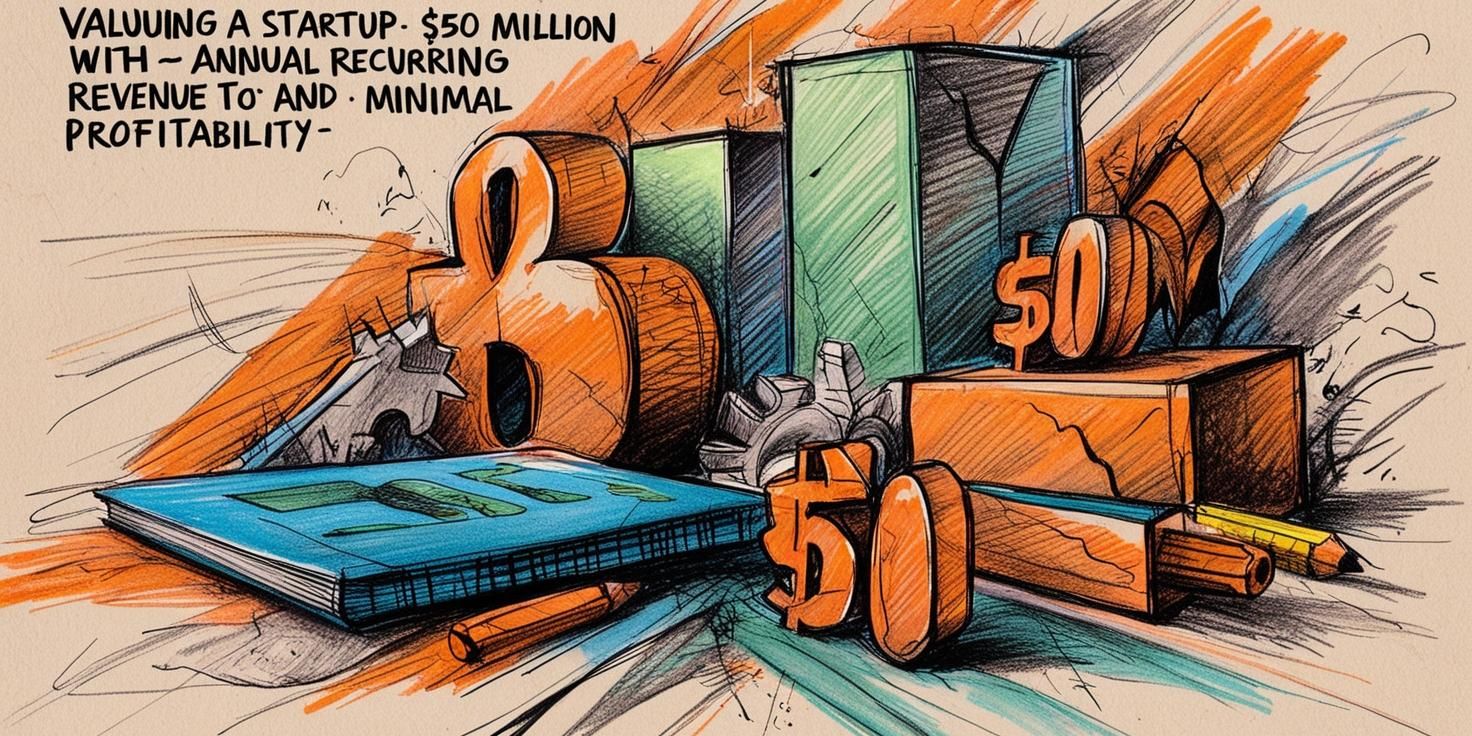How to Value a Startup with $50M ARR and Minimal Profitability 🚀
Master

If a Startup has $50 million as ARR but $48 million as expense, what will be its Valuation?
The valuation of a startup with $50 million in Annual Recurring Revenue (ARR) and $48 million in expenses depends on several factors, including its growth rate, market opportunity, and industry norms for valuation multiples. While the high expenses suggest low profitability, the ARR is a key metric, especially for SaaS and subscription-based startups.
Valuation Methodology
1. Revenue Multiple Method (ARR-Based):
Startups, particularly SaaS companies, are often valued using a multiple of their ARR. This multiple varies based on growth rate, market size, and other factors:
• Low Growth (<20%): 2–5x ARR
• Moderate Growth (20–50%): 6–10x ARR
• High Growth (>50%): 10–15x ARR or more
2. Example Calculation (Moderate Growth, 6x Multiple):
Assuming the startup is growing at a 30% annual growth rate:
Other Factors Influencing Valuation
1. Burn Rate:
• With expenses of $48 million and ARR of $50 million, the burn rate is minimal, indicating financial stability compared to startups with high losses.
2. Growth Potential:
• If growth is slowing or stagnant, the multiple could drop to 2–3x ARR, resulting in a valuation between $100M–$150M.
• For rapid growth (>50%), the multiple could rise to 10x ARR or higher, resulting in a valuation of $500M+.
3. Market Conditions:
• In bullish markets, multiples tend to be higher, while bearish markets lower valuations.
4. Profitability Outlook:
• Investors may consider the potential to reduce expenses and improve profitability in the future, positively impacting valuation.
Conclusion
• Estimated Valuation: $300M, assuming a moderate 6x ARR multiple.
• If the growth rate is slower, the valuation could drop to $150M–$200M. For rapid growth, it could exceed $500M.
Valuation isn’t just about ARR—it’s a combination of financial metrics, growth trajectory, market opportunity, and investor sentiment.